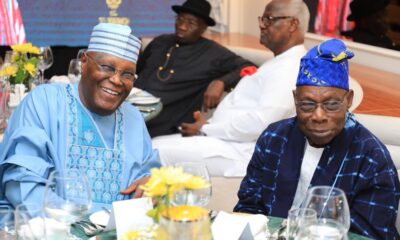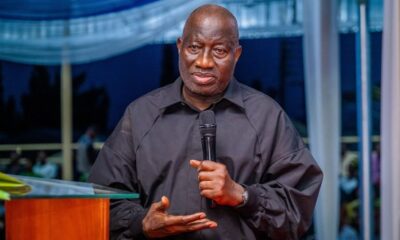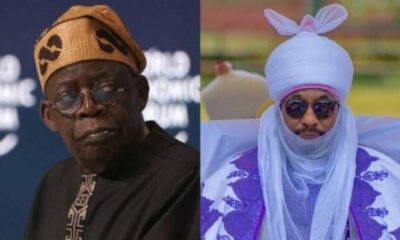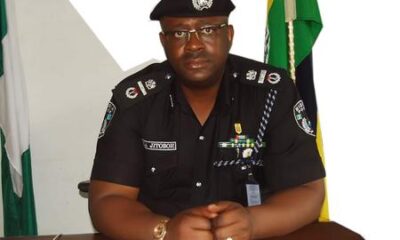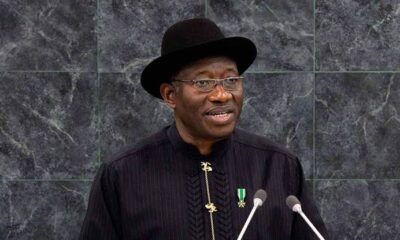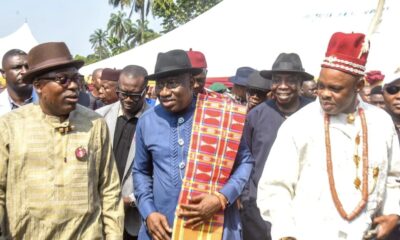Inside Nigeria
Goodluck Jonathan, Emir Sanusi II disagree over 2014 CBN sack
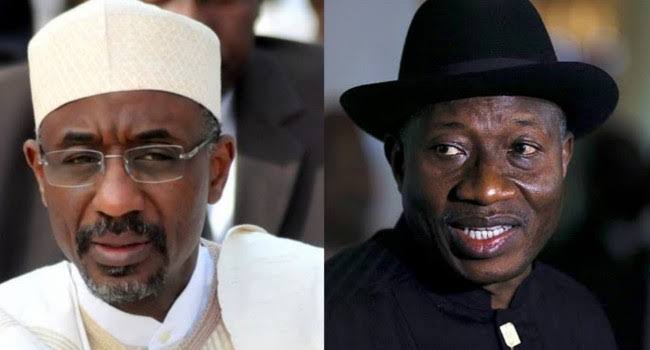
Former President Goodluck Jonathan and the Emir of Kano, Muhammad Sanusi II, publicly clashed yesterday over the circumstances surrounding Sanusi’s 2014 removal as Governor of the Central Bank of Nigeria (CBN).
Sanusi, in a book co-authored with former Finance Minister Shamsudeen Usman, alleged that Jonathan sacked him for exposing the alleged theft of $49.8 billion from government coffers during Jonathan’s administration.
However, Jonathan refuted the claim, stating that Sanusi was only suspended following a Financial Reporting Council (FRC) query concerning CBN’s financial mismanagement.
Jonathan further explained that had Sanusi’s tenure not expired, he would have been reinstated after the investigation.
The disagreement has reignited debates surrounding Sanusi’s controversial removal and the governance of public funds during Jonathan’s tenure.
The former president, who spoke during the launch of the book, “Public Policy and Agents Interests: Perspectives from the Emerging World,” said: “Let me mention that I do not agree completely with some issues raised by one of the contributors. But I don’t intend to join issues because he is our royal father. And he is here.
“The one he raised that he was sacked because he blew a whistle that the Federal Government lost $49.8 billion is not quite correct. He was not sacked, he was suspended because the Financial Reporting Council, FRC, queried the expenditure of CBN.
“There were serious infractions that needed to be looked at. That was the reason. But somehow, the time was short. So before we finished, his tenure elapsed. Probably, he would have been recalled.
“On the issue of $49.8 billion, till today, I am not convinced that the Federal Government lost $49.8 billion. And that year, our budget was $31.6 billion. So for a country that had a budget of $31.6 billion to lose about $50 billion and salaries were paid, nobody felt anything. The researchers that wrote this book need to do further research.
“More so, our revered royal father came up with the figures, first $49.8 billion, later $20 billion and later $12 billion. I don’t even know the correct one.”
Jonathan said he was vindicated about the claim after the former CBN governor began to change the narrative from $49bn to $20bn and later $12billion.
He added that PriceWaterhouseCoopers, PWC, which investigated the matter, revealed that no such amount of money was stolen but noted that $1.48bn could not be accounted for by the NNPC at the time.
He also recalled that the then Senate Committee on Finance, led by Senator Ahmed Makarfi, investigated the issue and found the claims unfounded.
Speaking further, Jonathan, who chaired the book launch, in his opening remark, insisted that no such amount was lost in his government.
He said there was no way such a huge amount of money would be stolen in Nigeria and the impact won’t be felt.
He said for a country, whose budget was about $31 billion at the time, it was impossible for such funds to have been stolen from the country’s purse.
He also recounted how he was confronted by then-German Chancellor Angela Merkel over the matter, adding that he explained that such money couldn’t have been stolen from a struggling country like Nigeria.
You constructively dismissed me as CBN gov, Sanusi tells Jonathan
But countering former President Jonathan that he was only suspended and not sacked, the Emir of Kano, Muhammad Sanusi II, told the former president that he sacked him as governor of the CBN, over the whistle he blew about the alleged missing $49.8 billion.
The monarch jokingly told the former president that he “constructively sacked him.”
Sanusi, who took to the podium hours after Jonathan’s comment, insisted that he was sacked by Jonathan.
“My boss sacked me. I was constructively dismissed. I continue to respect Jonathan and don’t have grudges against anyone,”he said as he delivered a short message at the event he presided over as Royal Father of the Day.
In a separate development, the monarch decried what he described as the frustration of Dangote Refinery, saying Nigeria was supposed to be maximising the benefits of ending fuel importation, with the establishment of the refinery.
He regretted that the privately-owned refinery was being frustrated because of vested interests, saying “Instead of grabbing this opportunity, we are frustrating it. This is due to vested interests.’’
He noted that for years, the Nigerian state had been captured by rent-seekers, insisting that “people get into office and what they think is how much they can get from the state.’’
The Emir, who noted that the chief author of the book lectured him in university, expressed joy that Usman, as one of the longest-serving public officials, had never been invited by the Economic and Financial Crimes Commission, EFCC.
“It is rare,’’ the monarch stated with emphasis.
The event also witnessed the formal unveiling of the Shamsuddeen Usman Foundation,SUF, founded and registered by Dr Usman’s children in his honour and dedicated to the promotion of education and Artificial Intelligence, AI, in the country.


